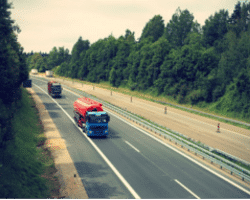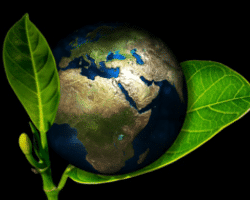In one of our previous blog articles, we already mentioned the Arviem capability of carbon footprint analysis based on real-time cargo monitoring data.
Real-time cargo monitoring could provide the relevant information and help to select areas of improvement. Improvements in the logistics chain are not only good for the environment. Lowering emissions usually also translate to lowered logistics cost, lowered capital cost, lowered insurance, etc.
Today we publish a blog contribution from TK’Blue Agency. The European TK’Blue Agency is a labeling and rating agency of eco-responsible transportation organized as a collaborative platform.
The transport sector is known to be one of the biggest CO2 emitters. On this subject, only rail freight can claim to have a low environmental footprint.
However, slightly resting on its “CO2” laurels, rail freight has never really brought forward all of its other societal and environmental assets.
For example, the 2007 “Grenelle Environment Round Table” has encouraged the SNCF (French National Railway Company) to implement a large plan for a “new green means of freight transportation”, which only highlighted the advantages of low CO2 emissions.
It is important to understand the rail transport offers remarkable environmental and social performance prospects in terms of particle emissions, risks of accidents or congestion.
A Senate report assessed that the lone cost of pollution due to particle emissions for France accounted for more than 100 billion euros every year. The World Health Organization estimates that diseases and premature deaths due to air pollution cost Europe 1469 billion euros.
The eco-environmental performance of the supply chain depends on the logistical organization, the quality of material and equipment, as well as the level of training of personnel. It’s by putting a figure on the societal cost of transport externalities that funds will be found to modernize the supply chain.
The design of transparent system to measure the global cost of transport negative externalities has to go beyond just taking greenhouse gases into account. The TK’Blue agency intends to provide the transport sector with the right tools to improve its global performance. Rail freight is, in this sense, one of the biggest winners of eco-responsible transport.



